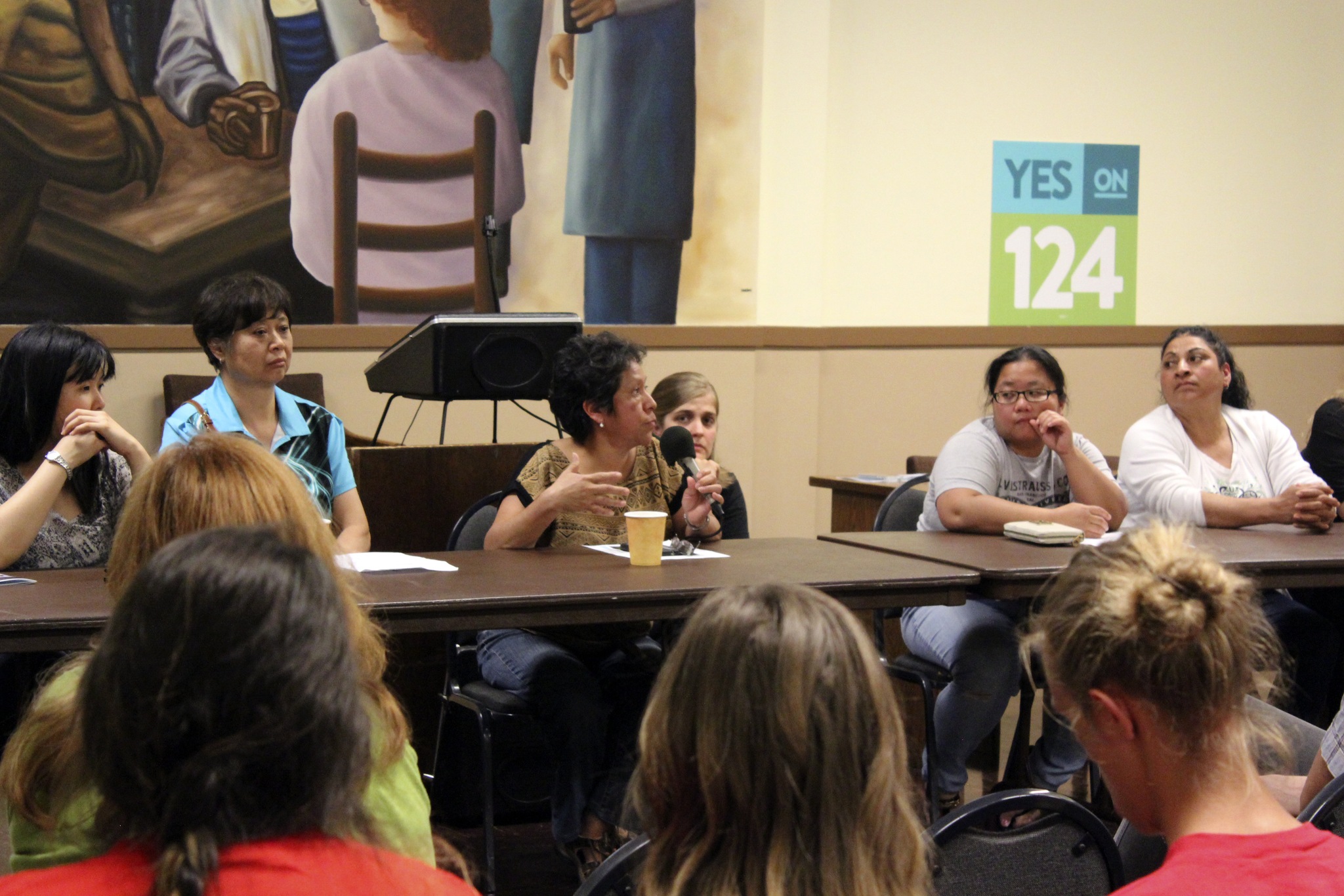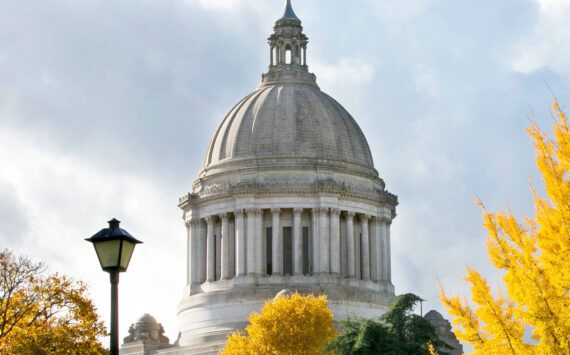On November 30, Mayor Ed Murray signed into law Initiative 124, a union-backed measure largely designed to protect hotel workers in Seattle from injury and harassment. On December 19, a trio of industry associations — the Seattle Hotel Association, the Washington Hospitality Association, and the American Hotel & Lodging Association — filed a complaint challenging the measure.
“We’re not surprised, necessarily; it was certainly a talking point that [the industry] used during the election to try and scare voters, to insinuate that there would be some legal question,” says Abby Lawlor, staffer at Unite Here Local 8 who led the campaign for I-124. “But certainly it is disappointing. We had such overwhelming support in the election” — the initiative passed with 77 percent of the vote — and now, she says, I-124’s opponents “are trying to walk it back through the courts. It’s a big waste of time for them, and for the city. But unfortunately it’s something we’re going to have to go through.”
The primary reason for the legal challenge, according to the complaint filed Monday morning with the King County Superior Court Clerk, is the aspect of the new law that would require hotels to maintain what the plaintiffs call “a blacklist” of hotel guests who workers say harassed them. I-124 stipulates that “a hotel employer must record the accusations it receives” regarding violence or sexual harassment and obtain the guest’s name and maintain it on a list for a minimum of five years. If the allegation “is supported by a statement made under penalty of perjury or other evidence,” the employer should bar the guest from staying at at that hotel for at least three years.
Washington Hospitality Association communications manager Jillian Henze calls this “requir[ing] hotels to play judge and jury” because, as written, there is no explicit mention of getting local law enforcement involved, nor is there a requirement that the hotels notify the guests that their names may be on such a list. The complaint document states that this “forces hotels to damage the reputation of accused guests…without making any assessment of the truth of the accusations” and doesn’t create an opportunity for guests to clear themselves of wrongdoing.
“It is clear to us that this initiative violates state law,” the Washington Hospitality Association said in a statement on Tuesday about the legal challenge. The “blacklist,” in particular, “forces our industry to choose between protecting our guests or protecting our employees. Our industry must protect both.”
(Full disclosure: Seattle Weekly endorsed I-124, as did elected officials, nonprofits, unions, publications, and individuals. But others, including the Seattle Times, recommended voters reject it; the Times called it a “sloppy, illegal first draft” that “could leave hotels open to lawsuits.”)
Lawlor says that from Unite Here’s perspective, the plaintiffs “are very clearly coming after the credibility of the allegations of sexual harassment from workers.” According to the official document, hotels “stand in the shoes of hotel guests” who would be affected by the measure. But “they don’t say, ‘We’re in the shoes of housekeepers,’” says Lawlor. “There’s nothing in the interest of protecting workers in there. I think they’ve made it very clear that they’re more interested in coddling their guests than protecting their workers.”
Another basis for the legal challenge, Henze says, is that plaintiffs believe I-124 violates the Seattle City Charter’s “single-subject rule” (Article IV, Sec. 7) which says that any ordinance “shall be clearly entitled and contain but one subject, which shall be clearly expressed in its title.” The initiative does address many disparate worker protections, including health care stipends for low-income workers, protections against sexual harassment, and job protection if a hotel is sold to a new owner.
But these protections are necessary and just, I-124 backers argue, and that is exactly why Seattle voters passed the measure so overwhelmingingly.
“The passage of the initiative was a bright spot on November 8, showing that the misogyny, racism, and xenophobia evident in the election of Donald Trump had no place in Seattle,” said Nicole Grant, Executive Secretary Treasurer of the Martin Luther King, Jr. County Labor Council, in a statement released Tuesday. “Now, the hotel industry is seeking to undo this hard-fought victory.”
“We work so hard,” adds hotel housekeeper and Unite Here Local 8 member Jenny Wu, “and it was great to see voters support us and show they care about hotel workers.”
Lawlor says that Unite Here certainly expects Seattle hotels to move forward with implementing the law, though she imagines the lawsuit might encourage them to “drag their feet.” She compares the situation to what happened in Sea-Tac: After the City of Sea-Tac passed its $15 minimum wage in 2013, large employers at Sea-Tac Airport sued, arguing that the law shouldn’t apply to airport workers. In 2015, they lost the suit, and now, many employers who gambled that the law wouldn’t be upheld are paying out huge sums in backpay to their employees.
But Henze says the Washington Hospitality Association is recommending its members “continue with implementation” of I-124 and “interpret ambiguities [in the law] as best they can until they get clarification from the city or the court.” That is not likely to happen before February or March, she says.








